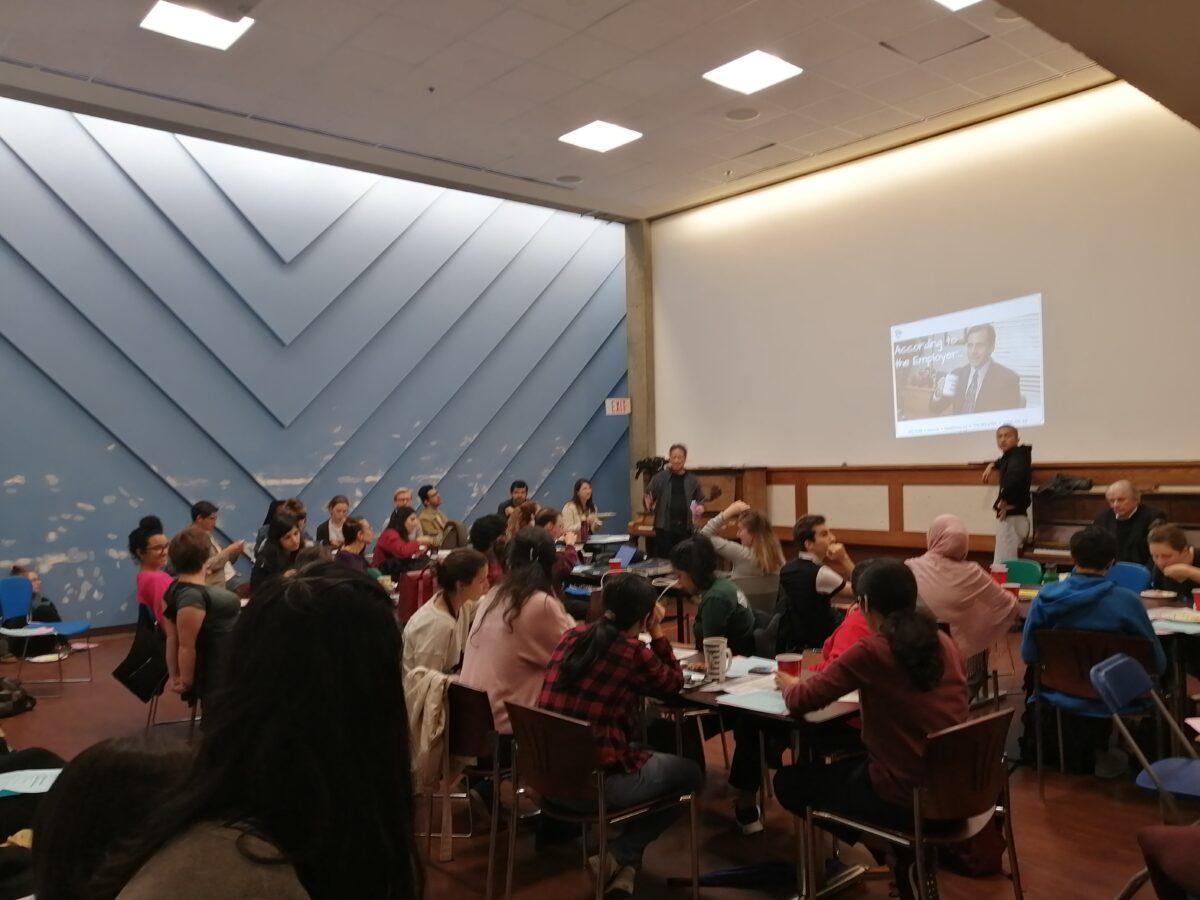Last Tuesday and Wednesday, TSSU’s Contract Committee met with the Employer to negotiate. Tuesday, we discussed ELC/ITP/ITA instructors; Wednesday, we discussed TAs. While the Employer brought proposals to TSSU each day, none firmly established its position. At the bargaining table, the Employer continued their preferred strategy of “concept bargaining,” communicating their desired changes verbally but not in writing, with broad terms and without concrete proposals.
Knowing this might become an issue this week, TSSU requested by email November 9, 2022 that SFU provide written clarification on their positions prior to bargaining this week, so we could understand their opening position.
Tuesday, November 15, 2022
On Tuesday Nov. 15th, TSSU sought clarification on the Employer’s ELC/ITP/ITA proposals. The only thing that became clear was that they intend to intensify the precarity of already precarious workers. When asked what problems their proposals intended to solve, they had no answer. Another thing that was clear was that they intend to increase workload and their ability to schedule work within the contact hours already established by classroom contact. The Employer focused on their stated intention to begin posting continuing full-time positions, but seemed to contradict this by saying they needed to change the way the probationary period for new part-time workers functions, from being measured in months worked to being measured in hours taught in order to allow for proper assessment. It’s important to note how drastic a change this is considering almost all instructors start as part-time, so this could extend the probation period from 4 months to in excess of a year, all the while being rehired. Confused, TSSU requested that they come to the next bargaining session with concrete expressions of their intentions, and of the perceived problems that their language changes were intended to solve for anybody.
Wednesday, November 16, 2022
On Wednesday, Nov. 16th, we met to discuss TA proposals. The Employer so far had only provided concepts of their intentions to change the Base Unit system but had only talked about vague notions of the connection between Base Units and hours worked. Subsequently, they expressed their intent to reduce the Base Units available to graduate students while dismantling a priority system that has taken years to develop and negotiate. The Employer’s proposals established no concrete positions, especially necessary for the TA Article.
Since TSSU had requested written clarification on their proposals before the start of bargaining on Wednesday, we were surprised the Employer did not provide any, nor did they come to the table with concrete proposals. Such specific proposals, in writing, are critical to establish a baseline for bargaining, to be sure that neither party “bargains backwards” but continues to move toward the other side’s position through negotiation. TSSU is prepared to bargain, but we cannot if the Employer comes to the table without having done their due diligence.
TSSU could not discuss its proposals without knowing their opening position, and thus, gave the Employer 4.5 hours on Wednesday to draft proposals in writing.
With one hour left in the day to bargain, the Employer came back with proposed language changes on the TA Article and Letters of Agreement, and TSSU began its presentation of the TA article proposals. TSSU’s proposal for allocating workload is empirical and directly addresses the power imbalance between the administration and employees. The Employer suggested that TSSU’s proposed formula, which generates hours in a TA contract by tying it to objective workload factors, would not be possible if it increases the cost of employing TAs. The Employer has expressed reluctance to calculate base units in any fashion that would increase remuneration for TAs, even in cases of overwork, acknowledging that currently the Employer may be saving money on TAs who work more hours than they are contracted for without claiming their hours.
What is concrete about the Employer’s proposals is their complete lack of understanding of the reality for our members. TSSU members provide a huge portion of the face-time teaching at SFU, but in those roles we are overworking, experiencing bullying and harassment, lacking job security, and working up to 5 jobs just to pay rent. A solution to the problems we face is outlined in our proposals; the Employer’s bargaining team must start doing its homework to either say yes to our solution, or propose alternatives.
